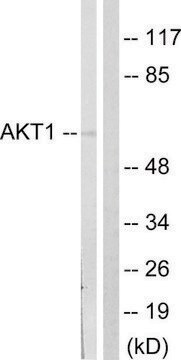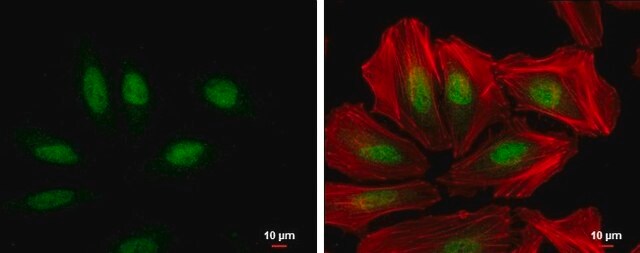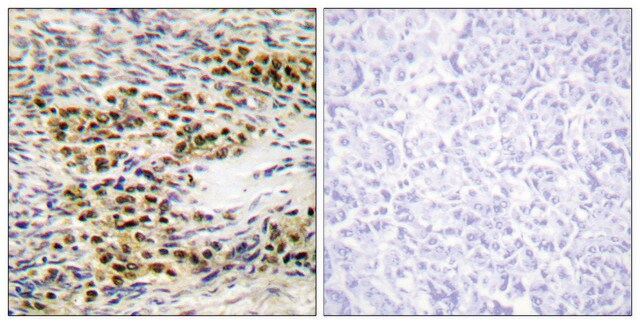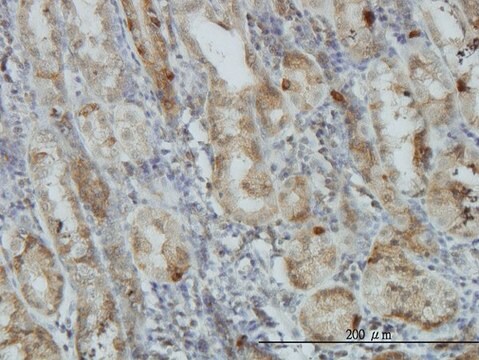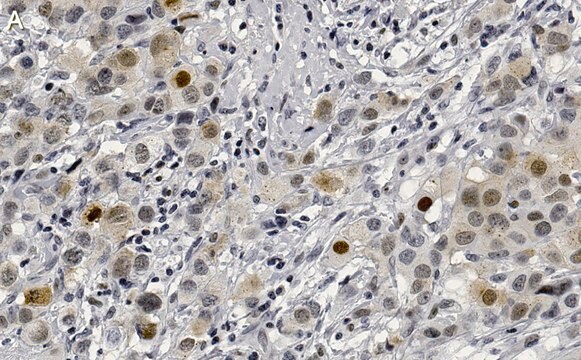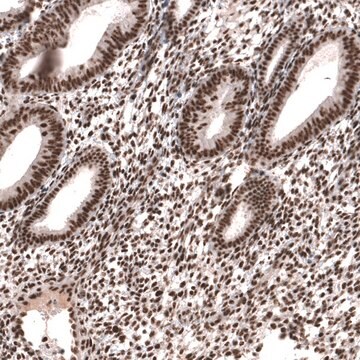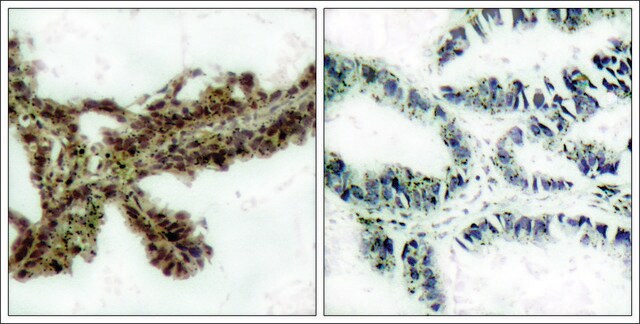05-669
Anti-phospho-Akt1/PKBα (Ser473) Antibody, clone 11E6
clone 11E6, Upstate®, from mouse
Synonym(s):
Protein kinase B, RAC-alpha serine/threonine-protein kinase, murine thymoma viral (v-akt) oncogene homolog-1, rac protein kinase alpha, v-akt murine thymoma viral oncogene homolog 1
About This Item
Recommended Products
biological source
mouse
Quality Level
antibody form
purified antibody
antibody product type
primary antibodies
clone
11E6, monoclonal
species reactivity
rat, canine, mouse, human
manufacturer/tradename
Upstate®
technique(s)
ELISA: suitable
western blot: suitable
isotype
IgG1κ
NCBI accession no.
UniProt accession no.
shipped in
dry ice
target post-translational modification
phosphorylation (pSer473)
Gene Information
dog ... Akt1(490878)
human ... AKT1(207)
General description
Specificity
Application
A previous lot was recommended at 0.05 mg/mL by an independent laboratory for ELISA.
Quality
Western Blot Analysis: 0.5-2 µg/mL of this antibody detected phosphorylated Akt1/PKBa in lysates from mouse NIH-3T3 fibroblasts treated with 100 ng/mL PDGF for 20 minutes.
Target description
Physical form
Reconstitute with 1 mL H2O (15 min. at RT). Concentration after reconstitution: 100 µg/mL
Storage and Stability
Reconstitute prior to use. Reconstitute with 1 mL H2O for 15 min at room temperature. Reconstituted aliquots should be stored frozen at -80°C. Thawed aliquots may be stored at 2-8°C for up to 3 months. Avoid repeated freeze/thaw cycles, which may damage IgG and affect product performance.
Analysis Note
PDGF treated NIH-3T3 cell lysates.
Other Notes
Legal Information
Not finding the right product?
Try our Product Selector Tool.
recommended
Signal Word
Danger
Hazard Statements
Precautionary Statements
Hazard Classifications
Acute Tox. 3 Dermal - Acute Tox. 4 Inhalation - Acute Tox. 4 Oral - Aquatic Chronic 3
Storage Class Code
6.1C - Combustible, acute toxic Cat.3 / toxic compounds or compounds which causing chronic effects
WGK
WGK 1
Certificates of Analysis (COA)
Search for Certificates of Analysis (COA) by entering the products Lot/Batch Number. Lot and Batch Numbers can be found on a product’s label following the words ‘Lot’ or ‘Batch’.
Already Own This Product?
Find documentation for the products that you have recently purchased in the Document Library.
Our team of scientists has experience in all areas of research including Life Science, Material Science, Chemical Synthesis, Chromatography, Analytical and many others.
Contact Technical Service